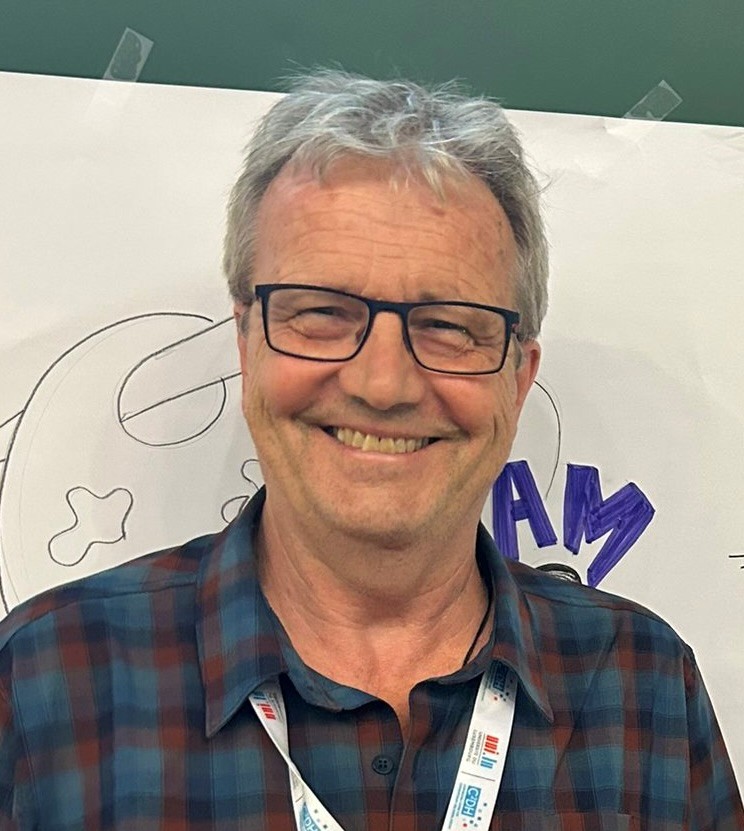David Dean

Distinguished Research Professor and Professor Emeritus – public history (hi/storytelling through performance; historical representations in film, theatre, museums; historical controversies in the public sphere; transnational public history) and early modern England (early modern theatre, witchcraft, and political culture).
- B.A. (Auckland), M.A. (Auckland), Ph.D. (Cambridge)
- Email David Dean
Biography
David’s research explores the ways in which publics create and engage with the past and make histories in contemporary society. He is especially interested in history-telling as a multimodal global phenomenon, through theatre and performance, films, museum exhibits, living and virtual history sites, heritage (especially food) and collecting (particularly philately).
A second-generation Canadian of English ancestry, David’s BA and MA are from the University of Auckland, New Zealand and his PhD from Cambridge. He was Lecturer in History at Goldsmiths’ College, University of London for eleven years before coming to Carleton where he became Full Professor in 2000. David co-founded Carleton’s Centre for Public History in 2002 serving as co-director for many years. Retired since July 2024, he continues to be an active historian; no longer taking on sole supervisions, he is available for co-supervision and graduate thesis committees.
History Work
David’s latest book Performing Public History. Case Studies in Historical Storytelling (Routledge, 2025) argues that historians are dramaturges of the past. It builds on the prize winning edited collections Migration and Stereotypes in Performance and Culture (Palgrave, 2020, with Yana Meerzon and Daniel McNeil) and History, Memory and Performance (Palgrave, 2015, with Kathryn Prince and Yana Meerzon) and draws on his experiences as a theatre consultant and the teacher of a graduate seminar on narrativity and performance.
David has published widely on topics ranging from early modern parliaments, lotteries, and witchcraft to living histories, museums, monuments, and film. More theoretical works include an article on negotiating accuracy and authenticity in Rethinking History and a chapter on the ‘public’ in public history in Joanna Woyden and Dorota Wiśniewska (eds) Public and Public History (Routledge, 2021). His edited book A Companion to Public History (Wiley, 2018) has become an authoritative reference work in the field.
David has worked collaboratively on many community-based projects which have led to a variety of co-productions (exhibits, digital platforms, performances, podcasts, film, comics). Two recent examples are Covid Work Stories and Designing Domestic Dining. In 2025 he received the Historical Society of Ottawa’s François Bregha Storytelling Award for his leadership role in Capital History Kiosks a project which tells local history through installations on traffic control boxes across Ottawa and a website.
David co-edits International Public History, the official journal of the International Federation for Public History with Andreas Etges (Munich). He served two terms on the IFPH steering committee (2018-2024), is a Life-Member of Clare Hall, Cambridge, a Fellow of the Royal Historical Society, and President of the Workers’ History Museum. Leading the SSHRC-funded project, “Philately in Troubled Times”, he is co-editing (with Sociology’s Tonya Davidson) In Granite and Bronze: An Unofficial Guide to the Monuments of Canada’s National Capital (MQUP, 2026) and writing The Challenge of Public History for the Cambridge “Elements” series.
Recent Graduate Students (2021-2024)
Rick Duthie, ‘One Day Stronger’: A Public History Theatrical Experiment about Remembered Sudbury Strikes, 1958-2010”, PhD Dissertation, 2021 (co-supervised with John Walsh).
Holly Benison, “The Backwoods Kitchen: An Exploration of 19th Century Canadian Culinary History on YouTube” , MA Public History, 2024 (co-supervised with James Opp).
Nicholas Surges, “‘A Heap of Broken Images’: Conflicting Accounts of the Mayerling Incident”, MA Public History, 2024 (co-supervised with Jennifer Evans)
Jackie Mahoney, “‘A Great and Noble Life”: Performing Johanna van Gogh Bonger”, MA Public History, 2023.
Lisa Bullock “‘I learned it from a board game’: performing historical narratives in Expedition: Northwest Passage”, MA History, 2022 (co-supervised with Danielle Kinsey).
Meg Oldfield, “Women are Persons! The History and Legacy of the Famous Five Monument”, MA Public History, 2022.
Meghan Newman, “A Catholic Woman and A Catholic Queen: The Religiousity of Mary I, MA History, 2021 (co-supervised with Micheline White).
Valerie Wood, “Vee in Between” and “Illustrating Adoption: The Making of Vee in Between”, MA Public History, 2021 (co-supervised with Laura Madokoro)